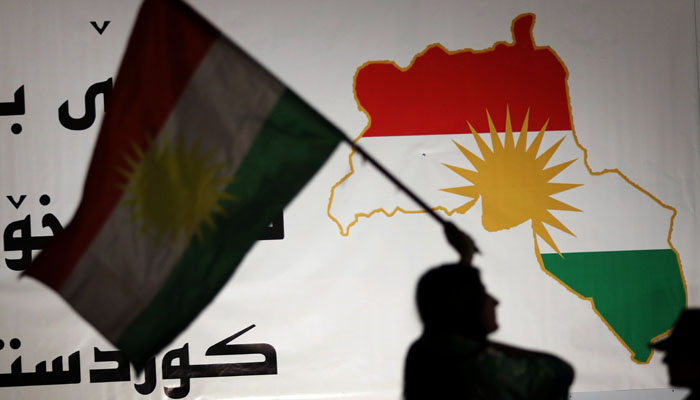The Kurdistan High Council for the Referendum said on Saturday that rumors of postponing a referendum for independence to be held in northern Iraq on Sept. 25 are baseless and that it will be held on time.
According to the Kurdistan 24 website, the high council said in a statement on Saturday that the vote for independence to be held by the Kurdistan Regional Government (KRG) will take place on Sept. 25 as planned.
Meanwhile, İbrahim Kalın, spokesperson for the Turkish Presidency, said on Saturday that the independence referendum for Iraqi Kurdistan will have serious consequences and trigger fresh crises in the region.
“If the referendum is not canceled, it will have serious consequences. Arbil should immediately correct this serious mistake that will trigger new crises in the region,” Kalın tweeted.
Talking to reporters before a special session of Parliament on Saturday, Turkish Defense Minister Nurettin Canikli said the referendum would always be “null and void” for Turkey and added that it would bring very dangerous consequences and could also lead to clashes in global terms.
“It is impossible to avert those threats unless Turkey actively takes steps to remove those mistakes and threats in the field,” Canikli said.
The legislature is holding an extraordinary session to debate a motion submitted to Parliament by the government that seeks the continuation of a mandate allowing the government to conduct cross-border operations in Iraq and Syria.
According to the Doğan news agency, the motion has a direct reference to the KRG referendum, authorizing the government to conduct cross-border operations on the grounds that efforts to destroy the territorial integrity of Iraq and Syria will endanger Turkey’s national security.
It also recalls the ongoing fight against the Islamic State in Iraq and the Levant (ISIL), the outlawed Kurdistan Workers’ Party (PKK) and its Syrian offshoot, the People’s Protection Units (YPG).
In October of last year, Parliament approved an extension of the mandate of the Turkish Armed Forces to conduct military operations in Iraq and Syria for another year. The mandate was first approved in 2007. In 2014, it was extended to include Syria for possible operations against the PKK, ISIL in Iraq and Syria and other groups.
